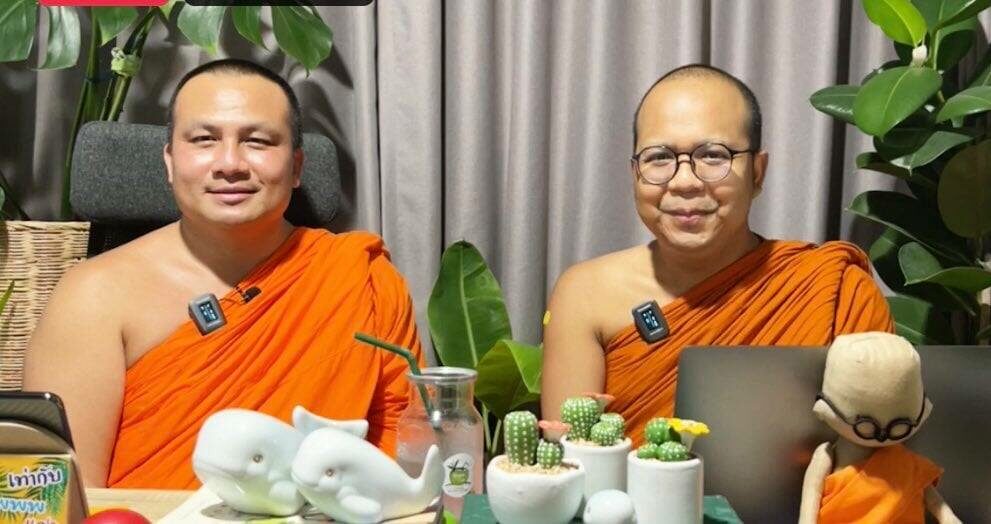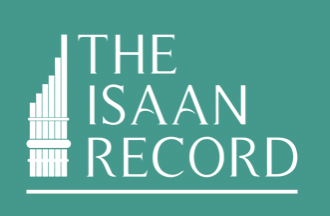
It was the power of social media that propelled two Buddhist monks in Thailand to become household names, their online broadcast on Facebook mixing jokes with unconventional wisdom. Well versed in the language and slang of today’s Thai youth, Phra Maha Paiwan Warawanno and Phra Maha Sompong Talaputto aimed to speak to a new, younger generation, some of whom find traditional Buddhism inaccessible. In the end, after a backlash from more conservative members of Thai society and being summoned before a parliamentary committee on religion, the monks agreed to tone down their show.
The conservative scalding of the two Bangkok-based monks evokes fears over a changing face of Buddhism in Thai society, a core pillar of the national ideology. However, irreverent humor and uncommon language are not all that moderate voices have to contend with. If public anxiety is predicated solely on the actions of these two monks, their concerns are sorely misplaced.
Consider the following.
In December of last year, a senior Buddhist monk from Chiang Rai Province was arrested after he was found to be involved in drug trafficking. Police found 4.8 million methamphetamine pills in a van used by the monk and his accomplices. The monk told the police he was paid 300,000 baht per delivery. And this past November, police raided the cubicle of a 22-year old monk in Nong Sai Subdistrict of Nang Rong, in Buriram, and found methamphetamine pills hidden inside an electric socket. Police were previously informed that a group of teenagers had been regularly entering and leaving the premises.

Also consider the murder of a 67-year-old man by a monk in Phitsanulok Province, after a lengthy argument. While the monk did not resist arrest or dispute the charges, gun violence by monks is a crime that is particularly uncommon, as monks are often regarded as the highest exemplars of virtuous conduct.
Horrifying stories also plague the northeast of Thailand. The 2020 murder of a pregnant woman by a monk in Buriram shocked locals. After an accident with a truck, the 59-year-old abbot of Wat Ban Nong Bua reportedly gave chase in his minivan to the other vehicle. The monk attacked a woman, one of the occupants of the truck, with a machete. After slashing her repeatedly, both the woman and her unborn child died at the scene of the crime.
Finally, sexual assault and abuse of minor children is a crime that should be wholly condemned, and where firm action should be taken. Several examples of these have made headlines recently, with a temple abbot detaining a 13-year old boy in Kanchanaburi Province for the purposes of sexual assault and the heinous November case in Buriram, where children were preyed upon and exploited by monks, often lured by the promise of money in exchange for sexual acts.
Sexual abuse by monks has been a problem in Asian countries for many years, evidenced by cases in Bhutan, China, Cambodia, and India. While the problem in Thailand is largely underreported, sordid details often make their way into the news media every year. Sexual abuse by monks is not limited to women, as the most common victims are often young boys, who apprentice with adult monks in local temples. In Thai Buddhism or Theravada Buddhism, sex is one of several transgressions that call for expulsion from the Sangha, as the abstinence from all forms of sex is required in order to reach enlightenment.
These issues have been more thoroughly investigated and reported on in other faiths, including the Catholic Church, where in 2011 a report showed that tens of thousands of children were abused by more than 4,000 priests.
Missing from the growing problem in the Buddhist faith in Thailand is not only a lack of coverage, but the twin problems of temple governance and a lack of organization among victims in seeking compensation for acts of injustice. The United States and European countries have sued the Catholic Church in some form or another, each within a unique context in terms of social norms, access to justice, and the unintended consequences of social stigma.
Absent in Thailand are solutions that can be readily implemented, ones that are aimed at not only addressing the need for justice for the many victims of abuse, but also addressing the perceived erosion of reputable and divine conduct. Like the Catholic Church, Buddhism considers the act of celibacy on the part of clergy to be more than just a practice, but both a sacrifice and a discipline. Such offenses are considered parajika, resulting in an immediate removal from the monkhood. It is only in some instances, such as in Japan, that monks are allowed to marry and have children.
Yet the pervasiveness of sexual misconduct is not the only moral rot to infect Thai Buddhism. Consider the case of Luang Pu Nen Kham Chattiko, the former head of the Wat Pa Khantitham monastery in Ubon Ratchathani Province, who was sentenced to 114 years in jail for money laundering, among other serious crimes. He rose to fame after fraudulently asking people to contribute to the creation of a large emerald Buddha statue, which was supposed to come from Italy. Twenty-nine people fell victim to his scam, donating almost 29 million baht to a project that was never constructed.
Corruption is a common problem in Thailand. According to Transparency International, the kingdom ranks 104th out of 180 countries surveyed. The perception of corruption in Thailand has stayed nearly constant, despite promises by numerous administrations to clean up the nation’s poor international reputation. In keeping with the rest of the country, Thai Buddhist temples are also affected. In the past, temples have fallen to corruption, reaching even the highest ranks, including the National Office of Buddhism (NOB).
Part of the problem lies with the Thai government, which has yet to address the problem with legislation that would close legal gaps where the temple donation system can be abused, both by monks and by the public. There are more than 40,000 temples in Thailand and many receive support from the state as well as from the generosity of the Thai public. It was only recently that the Revenue Department urged temples to participate in e-donation systems due to suspected corruption. For example, people would ask monks that their simple donations of 100 baht be inflated for tax purposes.
The temptation for monks is tremendous. Abbots are completely responsible for the management of temple financial affairs, while many are ill equipped or poorly trained in financial accounting. Because of poor regulation and the absence of transparency in temple finances, corruption can easily run rampant. Considering the bad management by the NOB in the past, there is little faith that can be placed in external agencies to control wayward finances.
Sexual abuse and the corruption of temple finances are like an albatross around the neck of Buddhism in Thailand. While the presence of monks on social media may cause alarm to more conservative elements of Thai society, their anxiety is indeed misplaced. The Thai news media is replete with examples of sordid deeds by unscrupulous monks. Ignored or now commonplace, it can give the false impression that Thai Buddhism is neither in decline nor in retreat. The reality is that the Thai public has become too accustomed to stories of sexual misconduct and corruption in temples. Complacency must become action.
The Thai public must refrain from overreacting to changes that would expand the scope of Buddhist influence to a new generation. At the same time, those concerned about the status of Buddhism in Thailand must become active participants in holding wayward monks accountable, as citizens have now demanded of the Roman Catholic Church.
Surely, Thai Buddhism’s survival depends on it.






